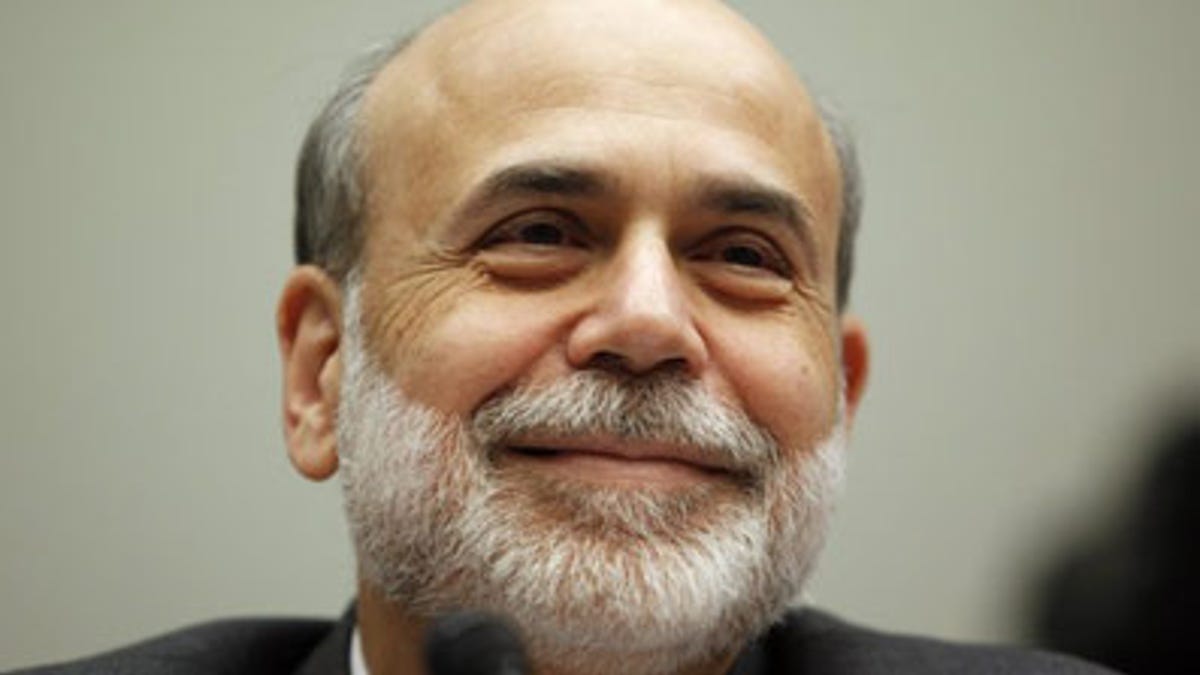
Reuters
Since Ben Bernanke became Federal Reserve chairman in February 2006, the economy has crashed. Depending on the metric you use, unemployment is anywhere from an awful 10% to a horrific 17%. America is running a trillion-plus-dollar deficit, our national debt has soared past $12 trillion, and a spike in Federal money creation and gold prices foretells major price inflation.
And yet Ben Bernanke is widely regarded as a financial wizard.
Bernanke is a wizard, all right--at public relations. Whenever someone points out how bad the economy is, he tells us it would be much worse--Great Depression 2.0--if not for his leadership. Sound familiar? Every failed leader sings the same refrain: You think things are bad now, but I saved us from something really bad. And now Bernanke and his supporters have used that spin to become Time’s “Person of the Year.”
Time’s article on Bernanke could have been written by his press agent: “The story of the year was a weak economy that could have been much, much weaker. Thank the man who runs the Federal Reserve, our mild-mannered economic overlord.”
No thank you.
For many years, 2009 included, Ben Bernanke has had a profoundly destructive impact on our economic lives. Bernanke played a vital role in causing the financial crisis, as one of the architects of Greenspan’s “cheap money” policy; he exacerbated the financial crisis through arbitrary, panic-inducing bailout policies; and he is presently laying the groundwork for future crises.
In 2003, in the name of fighting the recession that followed the dot-com bubble, Fed chairman Alan Greenspan manipulated interest rates down to the artificially low level of 1% -- and he did so in close consultation with his top deputy, Ben Bernanke. This policy was arguably the fundamental cause of the financial crisis, as it spawned and fueled an economy-warping orgy of lending, borrowing, and unsustainable housing bubble profits that would not have existed without ultra-cheap money. These policies created a dangerous illusion of wealth, as lenders and borrowers alike seemed to be getting rich -- everyone from the modest borrower cashing in on the skyrocketing paper value of his house, to the most sophisticated dealer in collateralized debt obligations that depended on rising home values.
Unfortunately, most academic economists, steeped in the Keynesian dogma that government manipulation of interest rates is economically necessary, lauded Greenspan and Bernanke as economic masterminds who had staved off a major recession by keeping rates low (sound familiar?). These same academics ignored the laissez-faire economists who repeatedly warned --based on the macroeconomic theory of Ludwig Von Mises, a true economic mastermind -- that government manipulation of interest rates is the basic cause of boom-bust cycles, and that a bust was coming.
Fast-forward to 2007, when the logic of Greenspan and Bernanke’s policies played out, with increasing foreclosures signaled an end to the housing bubble, as well as the excessive levels of spending it had brought about. Did Bernanke admit his mistakes, acknowledge he had helped bring about a necessary recession, and pledge to stop manipulating the market in the future?
Hardly. He dug in his heels and denied the existence of any significant economic problems. Then came this moment in March 2007: “the impact on the broader economy and financial markets of the problems in the subprime markets seems likely to be contained.”
Then, February 2008: “I don't anticipate any serious problems of that sort among the large internationally active banks that make up a very substantial part of our banking system.”
In July 2008: Fannie and Freddie “…will make it through the storm,” are “in no danger of failing,” and “adequately capitalized.”
When the conflagration became undeniable in September 2008, Bernanke -- equal parts arsonist and fire-denier -- was the last person qualified to address it. And contrary to the myth that he saved the day, he did the opposite. As a matter of sheer execution, Bernanke reacted to events with a completely incoherent policy that caused panic in the markets. First bailouts were necessary (Bear Stearns), then they weren’t (Lehman Brothers), then, 24 hours later, they were again (AIG). First, he told us the sky would fall if we didn’t surrender $700 billion to buy “toxic assets” from financial institutions; then he told us that was a bad idea but that the money was still needed.
As for Bernanke’s celebrated monetary policies, they are simply a rehash of the folly that created the housing bubble. The Fed is printing more money, lending it more cheaply than Greenspan did, and encouraging Americans (and their government) to borrow and spend far more than they can afford. That such a policy has laid the foundation for an enduring recovery has all the plausibility of President Bush’s 2003 “Mission Accomplished” banner.
“Person of the year”? Please. Don’t be surprised if, when we reap what Bernanke has sown, he becomes a top competitor for “failure of the decade.”
Alex Epstein is a fellow with the Ayn Rand Center for Individual Rights in Washington, D.C.
